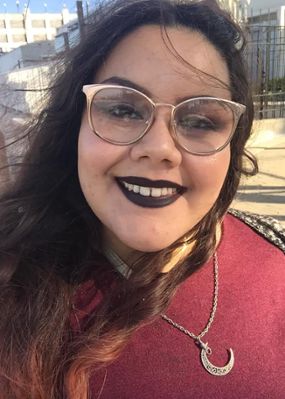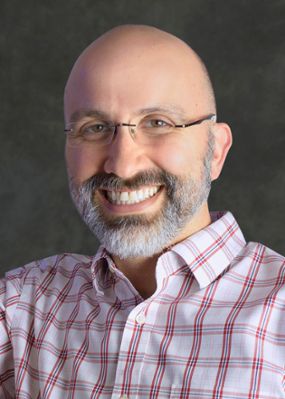NatSci graduate student, faculty members receive Creating Inclusive Excellence Grants
Through Michigan State University’s Creating Inclusive Excellence Grants, two new projects, one led by a College of Natural Science (NatSci) graduate student, and a second by two NatSci faculty members, will focus on improving STEM for historically excluded groups.
Doctoral student Toby SantaMaria will use the grant to increase accessibility and inclusivity in the graduate school application process. Faculty members Stephen Thomas and Julie Libarkin will implement a system for mentoring faculty on how to facilitate inclusive experiences.

SantaMaria and their colleagues received a $15,000 grant for their project to establish a partnership with the Ecology, Evolution, and Behavior program (EEB) and the W. K. Kellogg Biological Station (KBS). They will host an Envision EEB Graduate Preview Weekend where historically excluded groups can receive professional development and application guidance. In addition, two undergraduate events will showcase STEM careers and help students with science communication skills.
“Students from historically excluded groups can find the graduate school application process mystifying,” said SantaMaria, who works in MSU plant scientist Lars Brudvig’s Lab and is co-chair of EEB’s Diversity, Equity, and Inclusion Committee. “Many lack insider knowledge of how to search for programs, contact potential advisors, or craft competitive applications. The EEB Preview Weekend is a chance for students to learn about graduate school and develop professionally into the scholars they want to be."
Stephen Thomas and Julie Libarkin are dedicating their careers to building inclusivity. They were recently selected for new roles as Assistant and Associate Dean in the office of the Associate Provost for Undergraduate Education. As they develop STEM research and oversee MSU’s new STEM Teaching and Learning Facility, they will use their $12,500 grant to institute mentors and fellows focused on building inclusive STEM environments.

“I am continually reminded of the role that connection to people and the environment plays in our ability to learn,” said Thomas, a NatSci specialist in curriculum development for science communicators and an Integrative Studies in General Science faculty member. “Having mentors and graduate students dedicated to this work will be a great way for me to learn more about inclusive spaces from fresh perceptions, perspectives, and expertise.”
Thomas and Libarkin will oversee two Inclusion Excellence Mentors who will fulfill one-week residencies in the STEM Teaching and Learning Facility. They will also establish two Graduate Student STEM Inclusion Fellows to facilitate deep interaction between educators, mentors, and students. As they foster inclusive experiences in STEM, Thomas and Libarkin hope their model will spread into other spaces across campus.

“As I have grown in my career, I’ve come to recognize that access, inclusion, equity, and/or justice need to underpin all my work,” said Libarkin, a professor in the Department of Earth and Environmental Sciences who runs the Geocognition Research Laboratory. “I’m excited to meet and learn from our inclusion mentors and graduate fellows and collaborate with instructors to bring lessons learned into the STEM Teaching and Learning Facility, an incredible resource we hope to see every department across STEM utilizing.”
Founded in 2005, the CIEG program provides funding to colleges, academic and administrative units, individuals, and groups to advance diverse recruitment, support underrepresented groups, and promote outreach and engagement. CIEG supports projects that create collaboration within and across organizational systems in support of an inclusive educational and work environment.
Banner image: MSU's Creating Inclusive Excellence Grant program provides funding to colleges, academic and administrative units, individuals, and groups to advance diverse recruitment, support underrepresented groups, and promote outreach and engagement. Courtesy photo